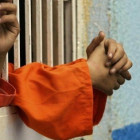
Grant Offers Juvenile Court Drug Training Program
|
The Office of Juvenile Justice and Delinquency Prevention, The U.S. Department of Justice, and the Office of Justice Programs offers the 2011 Best Practices for Juvenile Courts Training Grant. The objective is for juvenile drug courts to better serve kids who are involved in substance abuse, co-occurring substance abuse, and mental health trauma. This will be accomplished by using the Sixteen Strategies of Effective Juvenile Drug Courts as a framework to help build competency, performance and the capacity of the juvenile drug courts nationwide. The Deadline for this is June 6, 2011 @ 11: 59 EST.







